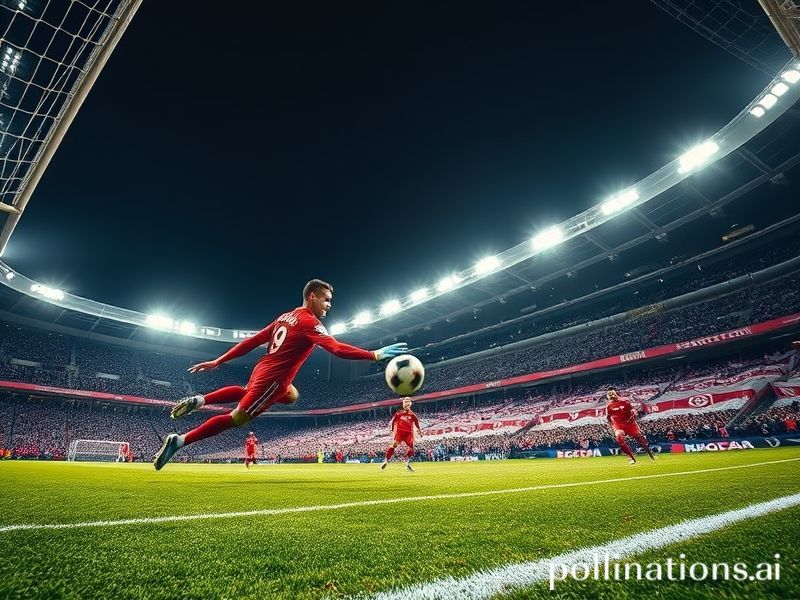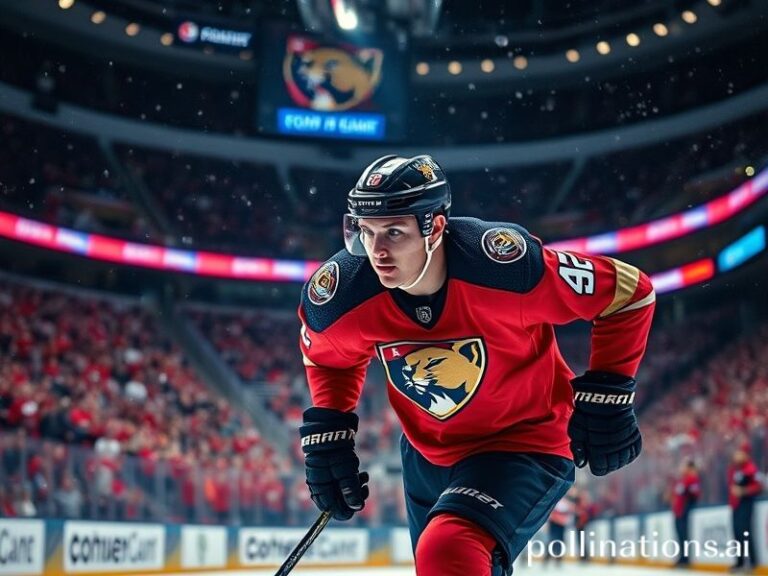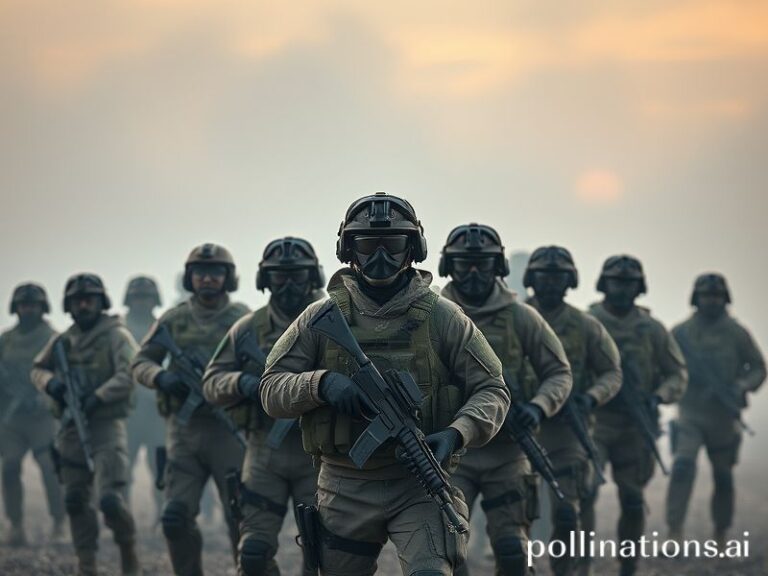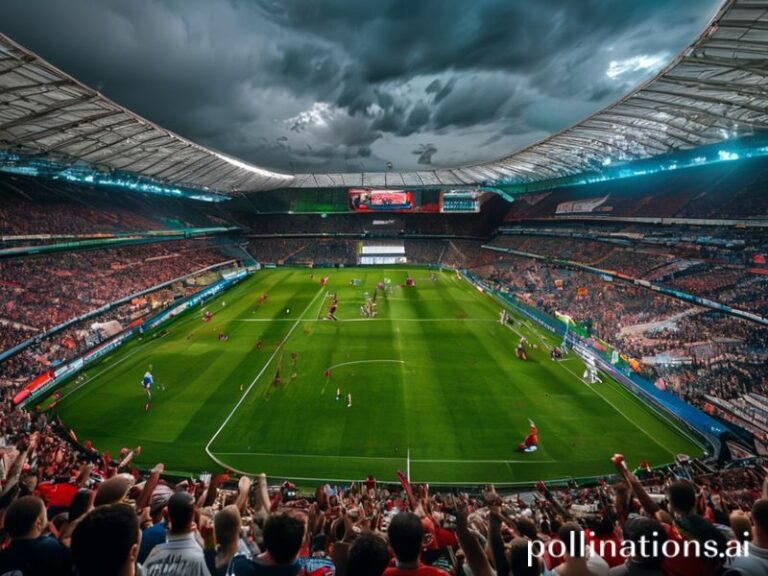Bundesliga: Germany’s Last Moral Football League in a World Gone Mad
Bundesliga: Germany’s Weekly Reminder That Even Football Can’t Fix Late-Stage Capitalism
By Dave’s Foreign Correspondent, currently sober enough to file copy
The Bundesliga kicked off again last weekend, and—much like the planet’s remaining glaciers—showed up right on time, slightly smaller, and with a multinational corporate logo where its soul used to be. From São Paulo living rooms to Seoul betting cafés, 200-odd jurisdictions tuned in to watch 18 German clubs chase a silver salad bowl, proving that nothing unites humanity quite like the spectacle of extremely wealthy young men jogging in formation while algorithmic ads for cryptocurrency exchanges flicker across their sleeves.
Global investors adore the Bundesliga because it is the last major league still run with the fiscal rectitude of a Swabian housewife balancing her checkbook in 1987. Germany’s “50+1” rule—designed to prevent any single oligarch from turning Borussia Dortmund into his private chess set—has become the Kryptonite of every petro-state sovereign wealth fund from Doha to Delaware. Imagine, if you will, a sports league where ticket prices remain low enough that actual humans can attend without refinancing their kidneys. Quaint, almost medieval.
Yet the league’s stubborn refusal to sell its entire cultural heritage to the highest bidder is precisely why the Bundesliga now functions as a geopolitical Rorschach test. Washington think-tankers cite it as proof that regulated capitalism can still produce thrilling entertainment; Chinese state media hail it as evidence that European soft power is adorable but ultimately irrelevant; and British pundits—whose own Premier League has been strip-mined by every hedge fund north of the Equator—call it “quaint” with the same tone Victorian colonists once reserved for “noble savages.”
The international fan base, meanwhile, keeps metastasizing. Last season, more Indonesians watched Bayern Munich on illegal streams than Bavarians watched legally. In Kenya, Bundesliga fixtures are broadcast at 4 p.m. local time, right when Nairobi traffic achieves its daily apotheosis of existential despair, thereby providing office workers a sanctioned excuse to stay glued to their phones while pretending to file TPS reports. Globalization’s finest hour: a simultaneous traffic jam in both metal and metaphor.
On the pitch, the football itself has become a sort of moral allegory. Bayern’s decade-long monopoly on the Meisterschale is less a dynasty and more a cautionary tale about unchecked accumulation—think Amazon, but with better calves. Bayer Leverkusen finally broke the spell this year, led by Xabi Alonso, a man so serenely handsome that diplomats have considered deploying him instead of sanctions. Their triumph was celebrated from Lagos to Los Angeles as proof that, occasionally, David beats Goliath, provided David has a €300 million pharmaceutical conglomerate in his corner.
Off the pitch, the league’s environmental credentials are the stuff of comic opera. Clubs now brag about “sustainable travel,” which in practice means chartering slightly newer planes to away fixtures and planting three (3) ceremonial trees somewhere in the Black Forest. The carbon offset certificates are printed on recycled paper, presumably by workers whose own commute involves three transfers and a yak. Meanwhile, every substitution graphic is sponsored by a different airline, reminding viewers that if you really loved the planet, you’d simply stay home and watch it die in 4K.
And yet, for all the hypocrisy, the Bundesliga remains one of the last communal campfires in an atomized world. On Saturday afternoons, Turkish barbers in Cologne pause their clippers, Nigerian exchange students in Berlin forget their visa anxieties, and Syrian refugees in Dortmund high-five pensioners who once marched for Schalke in the 1960s. For ninety minutes plus injury time, collective delusion feels like solidarity, and the only existential threat is a last-minute VAR decision.
In that fragile interval, the Bundesliga offers a glimpse of the world we were promised: affordable, democratic, and just competitive enough to keep the dream alive. Then the whistle blows, the ads return, and everyone checks their portfolio. But hey—at least the grass is still green, for now.







